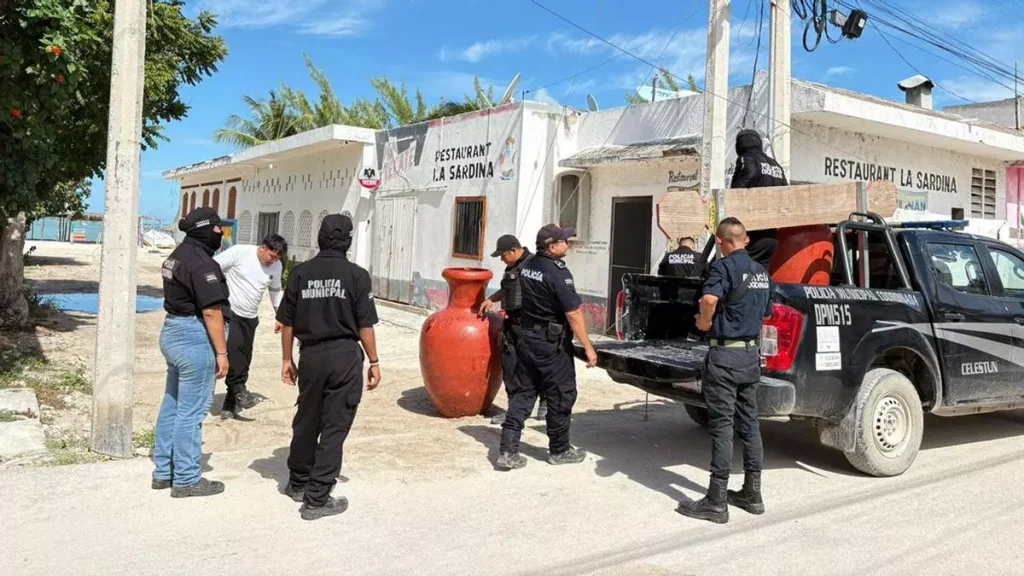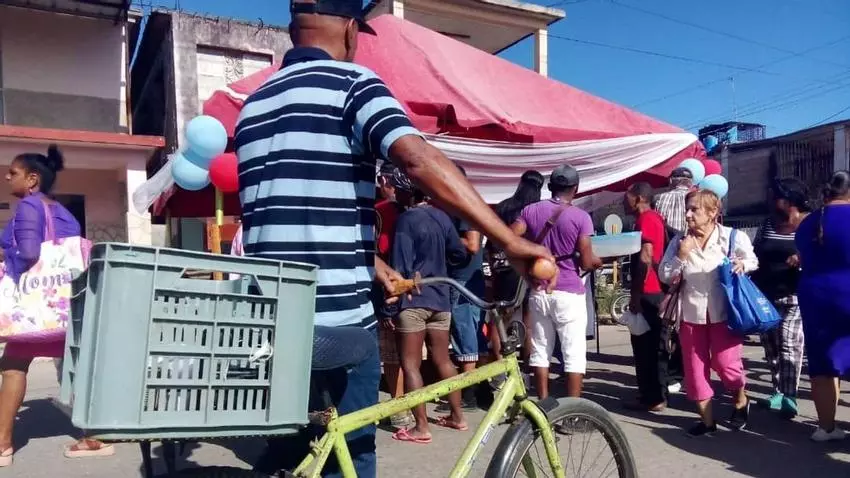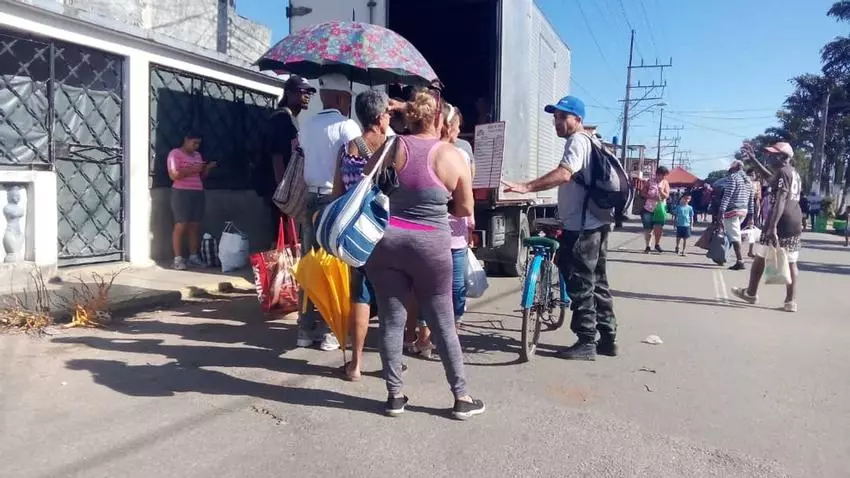With colorful awnings, balloons and recorded music, the initiative is reduced to a few platforms with wilted and reheated soupy food.

![]() 14ymedio, Julio César Contreras, San José de las Lajas (Mayabeque), October 22, 2025 / The sun beats down on Avenida 40 in San José de las Lajas, Mayabeque, where a row of colorful awnings attempts to shade the shortages. Beneath the tarps, vendors fan themselves with pieces of cardboard, and shoppers amble along, carrying bags, umbrellas, and bottles of water. It is the third Saturday of the month, the day of the Provincial Agricultural Fair, although at first glance, you wouldn’t think the word “provincial” is so inappropriate.
14ymedio, Julio César Contreras, San José de las Lajas (Mayabeque), October 22, 2025 / The sun beats down on Avenida 40 in San José de las Lajas, Mayabeque, where a row of colorful awnings attempts to shade the shortages. Beneath the tarps, vendors fan themselves with pieces of cardboard, and shoppers amble along, carrying bags, umbrellas, and bottles of water. It is the third Saturday of the month, the day of the Provincial Agricultural Fair, although at first glance, you wouldn’t think the word “provincial” is so inappropriate.
The balloons tied to the tents fail to disguise the poverty of the scene. At one end, a blackboard announces the specials at La Casona kiosk: a soup for 40 pesos, a small pizza for 150, a pound of pre-boiled spaghetti with nothing added for 150. Behind the counter, the Cuban flag serves as a backdrop, and a small fan struggles to move the thick air.
“Anyone who wants to buy something good has to come early,” says Victor, a man who is already leaving with just a few yuccas and a bunch of plantains, speaking to 14ymedio. “At ten in the morning, this place is a desert,” he adds. “All that remains is what no one wanted.”
Years ago, he recalls, the fair took up six or seven blocks, from Camilo Cienfuegos School to the Youth Computer Club. Now, it only takes two to cover the entire area. “Before, there were trucks full of food, pallets of fresh produce, even pork. But with the price caps, the farmers don’t bring anything anymore. They come to comply,” explains the university professor, wiping his sweat with a handkerchief.

An agricultural fair with anemia, in one of Cuba’s most agricultural provinces, is a painful irony. But in San José de las Lajas, they’ve learned, through empty platforms and sky-high prices, that it’s not enough to select a space, give a rimbombante [flashy] name to a market day, and proclaim in the local media that there will be “a multitude of options” of available food.
In another tent in the run-down place, blue tarps flap over an empty table. The woman serving sighs. “If only we had electricity, we could sell cold sodas.” The phrase is lost in the murmur of recorded music distorted from a speaker. Neighbors come closer more out of routine than hope.
Nixa, a housewife from Mayabeque, examines some yuca with a distrustful expression. “At 17 pesos a pound, it’s not bad… if it were good,” she says, adding, after scanning the surroundings: “No rice, no beans, no oil. And this is a provincial fair? All they have here are squash and papayas, and all from the same truck in Güines.”
A few meters away, a man on a bicycle weaves through the crowd. He carries an empty plastic crate on the rear rack: he’ll use it if he can get his hands on some eggs. “I went to have a beer in the tent of El Chino restaurant,” he says, “but it wasn’t even cold.” “When I came to check, the eggs were gone. This can’t be fixed.”

It’s eleven o’clock, and the heat forces people to seek shade. People protect themselves with umbrellas, some rest on the sidewalk curbs. The air smells of stale fried food and reheated broth. The vendors, resigned, begin to clear away. A truck, parked in front of a house, sells the last bunches of plantains while a group of women argue over the price. Behind them, a girl holds an empty bag, watching everything disappear.
Five blocks closed to traffic, yet two would be enough to contain the entire fair. The music keeps playing, but no one dances. “This doesn’t feed anyone,” says Félix before walking away. “People come looking for food, not reggaeton or rum. What they need isn’t for sale.”
As the sun sets, vehicular traffic starts up again on Avenida 40. Balloons hang limply, awnings come down, and the smell of burnt grease mingles with the dust. The fair fades, like so many other things in Cuba, leaving behind an echo of exhaustion and a handful of empty bags.
____________
COLLABORATE WITH OUR WORK: The 14ymedio team is committed to practicing serious journalism that reflects Cuba’s reality in all its depth. Thank you for joining us on this long journey. We invite you to continue supporting us by becoming a member of 14ymedio now. Together we can continue transforming journalism in Cuba.
